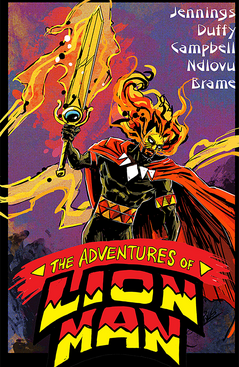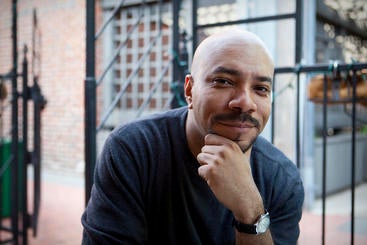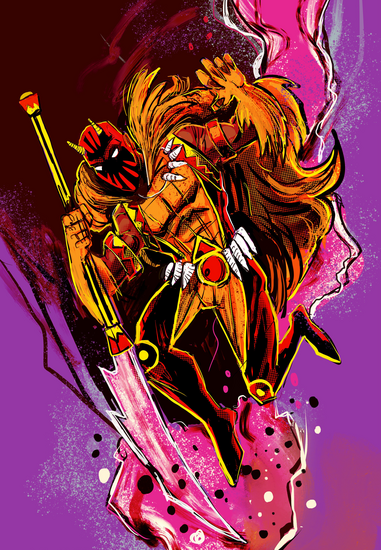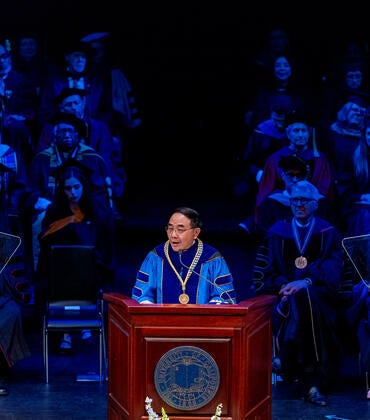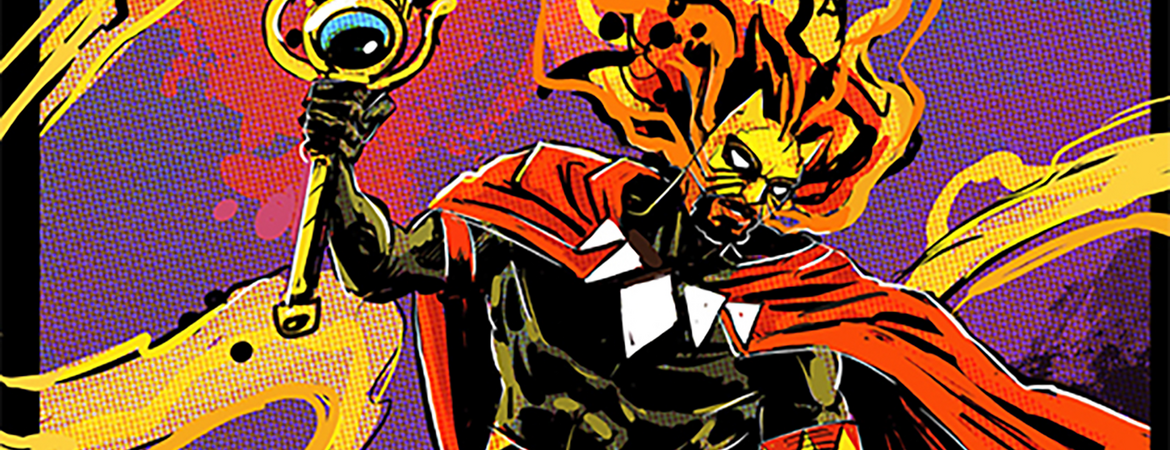
A little-known comic book character considered one of the first Black superheroes is getting a revival by a team of artists including UC Riverside professor John Jennings.
Jennings, a professor of media and cultural studies and an award-winning graphic novelist, is one of the creators behind “The Adventures of Lion Man,” an anthology graphic novel released Aug. 12 by Rosarium Publishing.
The character of Lion Man first appeared in 1947 in the first and only issue of “All Negro Comics,” which featured an all-Black creative team led by writer Orrin C. Evans. Distributors and the paper supplier blocked a second issue from being published, according to comics historians.
Jennings first came across the character about a decade ago on a website of characters that were now in the public domain. He started drawing Lion Man as a way to relax after a day of working on “Parable of the Sower,” a graphic novel adaptation of Octavia Butler’s novel he worked on with Damian Duffy at that time.
“I started being really interested in how does this character fit into the larger media history of Black images, comics, and superheroes,” Jennings said.
He described “All Negro Comics” as the first major independent comic book collection by Black artists for a Black audience.
“The more I study our history the more I realize African Americans were innovating in spaces we didn’t even know about,” he said. “It made sense to me that there were people who are Black doing this work so for the most part I wasn’t surprised, but I was pleasantly energized by the fact that this character existed.”
In the comic book, Lion Man is a Black scientist sent by the United Nations to the African Gold Coast where he battles a colonialist duo to protect a deposit of uranium from being turned into a nuclear weapon.
“This was an audacious story with a well-educated, Black protagonist who single-handedly saves the world,” wrote Michael Dando, an associate professor of English at St Cloud State University, in an introduction to the new collection. “He is not the comic relief. He is not stereotypically mysterious. He doesn’t prop up the ‘noble savage’ stereotype.”
Lion Man predates Black Panther, the popular Marvel superhero introduced in 1966, who is the ruler of the advanced African nation of Wakanda. Jennings noted how both characters come from the tradition of jungle adventure comics but introduce elements of Afrofuturism. Jennings credits the recent Black Panther movies with increasing interest in exploring genre with Black characters.
Jennings said he was attracted to the idea of reviving Lion Man, a similar character to Black Panther, by adopting his own approach to how the character would have evolved.
Jennings invented a mythology and backstory for Lion Man as if the comic book had never stopped publishing. He imagined the character in different eras and styles such as an armored Iron Man-like version in the 1980s and one with fantasy elements in the 1990s
The new collection includes the original 1947 story, reprinted for the first time, as well as three brand new stories. Jennings wrote two of the stories working with artist David Brame, who he collaborated with on their recent graphic novel “Parable of the Talents,” adapting Butler’s novel. Other contributors include writers Bill Campbell, Duffy, and Yvette Lisa Ndlovu, and artist Stephen Bissette.
In the current political climate, Jennings said bringing attention to Black history and artists is more important than ever.
“Using comics like this to highlight and archive our actual history, it becomes vital because honestly if you don't know your history, then your future is uncertain, you have no agency in the future,” he said. “It’s a very Afrofuturist story in that idea of protecting the past so we can get to the future intact.”
